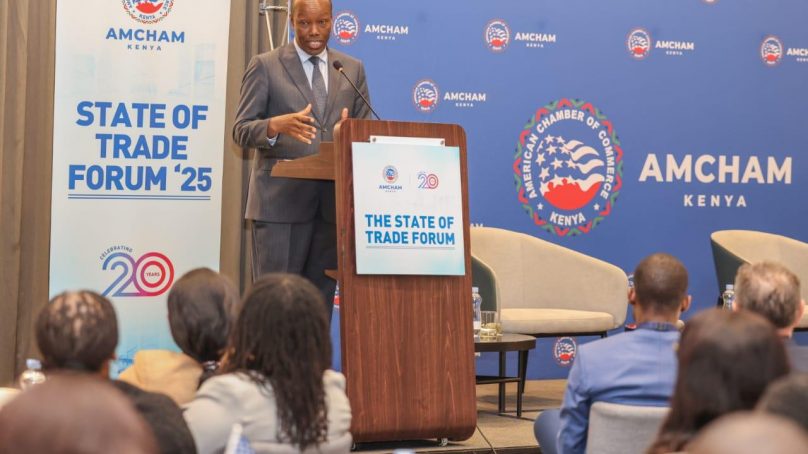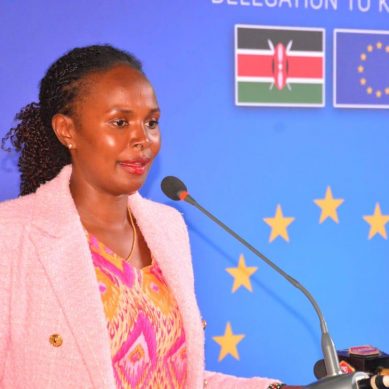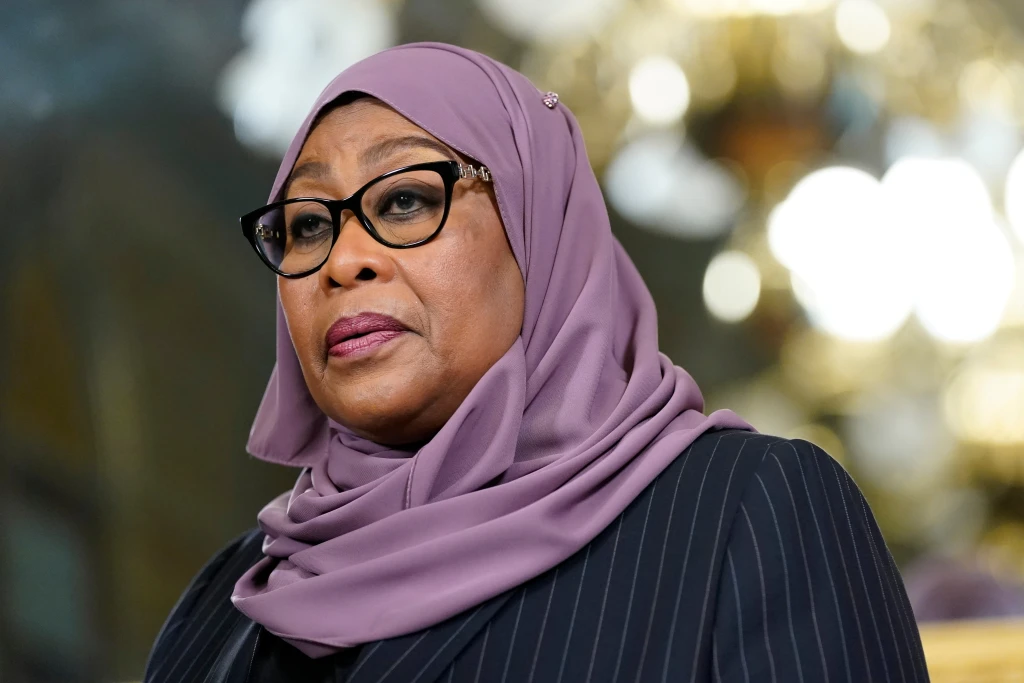
Cabinet Secretary for Investments, Trade and Industry, Lee Kinyanjui, has called for renewed dynamism in Kenya’s trade strategy following the expiry of the African Growth and Opportunity Act (AGOA), saying the country must now forge a modern, investment-led partnership with the United States and other global markets.
Speaking during the American Chamber of Commerce (AMCHAM) State of Trade in Kenya Forum in Nairobi, Kinyanjui said Kenya remains optimistic about a positive policy announcement from Washington before the end of the year. He, however, noted that in the meantime, the country must continue positioning itself as a continental trade and industrial hub.
“Kenya remains the gateway to East Africa and the rest of the continent,” he said.
“We must seize the opportunity to build smarter and more resilient frameworks. This includes deepening special economic zones to attract investment in sectors like electric vehicles and pharmaceuticals and using lessons from the pandemic to diversify supply chains,” he added.
The cabinet secretary said that the government’s decision to lift the moratorium on power purchase agreements (PPAs) marks a significant step in addressing frequent power outages and high energy costs that have hindered manufacturing growth. He said the policy shift will enhance industrial competitiveness, lower production costs, and attract investors into Kenya’s energy and manufacturing ecosystems.
Kinyanjui emphasised that the post-AGOA era presents a chance to develop a balanced and sustainable trade regime that promotes value addition and regional integration in line with the objectives of the African Continental Free Trade Area (AfCFTA).
“We are not waiting for opportunities; we are creating them. Kenya’s next trade chapter must be defined by innovation, competitiveness and partnerships that deliver prosperity for our people,” Kinyanjui said.
AMCHAM Kenya Board President Angela Ng’ang’a said the end of AGOA should not be seen as a setback but as an opportunity for Kenya and the United States to redefine their partnership on more reciprocal and forward-looking terms.
“Global trade is evolving, and so must we. Kenya and the US now have a chance to shape a reciprocal, investment-driven platform that reflects the realities of a digital and diversified global economy,” she observed.
Ms Ng’ang’a encouraged increased US investment in Kenya’s textile and agricultural value chains and reaffirmed the private sector’s commitment to sustained policy dialogue and regional trade development. She added that American investors continue to view Kenya as a stable and strategic entry point into the East African market.
US-Africa trade expert Gavin van der Burg described the AGOA expiry as a catalyst for innovation rather than retreat, urging both nations to use the moment to design a more inclusive and sustainable model for the future.
“AGOA was never meant to be permanent. Now is the time to build a model for the future shaped in Nairobi by African talent and American partnership,” he said.
Van der Burg highlighted Kenya’s integrated cotton and apparel value chain as a practical example of the partnership’s potential, where US cotton is imported, processed locally into garments, and exported back to the US.
He proposed that the model be expanded through contract farming, investment in yarn-to-fabric infrastructure, and logistics improvements to strengthen competitiveness and create more local jobs.
Recent trade data indicates that commercial ties between Kenya and the United States have remained strong despite AGOA’s expiry.
In 2024, US exports to Kenya totalled $771 million, representing a 60 per cent increase from the previous year, while Kenyan exports to the US reached $737 million, driven by $470 million in apparel, alongside coffee and cut flowers.
The trade balance reflected a $34 million US surplus, which experts described as a healthy and mutually beneficial exchange.
As discussions on a successor framework continue, both governments are expected to accelerate negotiations aimed at establishing a trade agreement that supports reciprocity, industrial growth, and African innovation.
- A Tell Media / KNA report / By Naif Rashid







